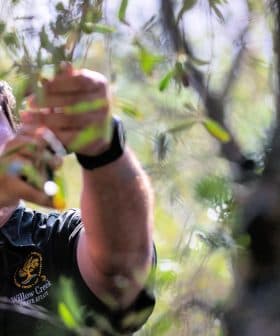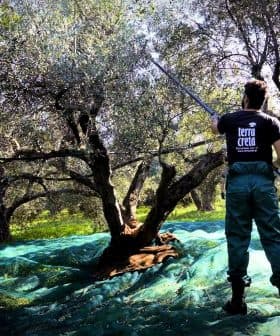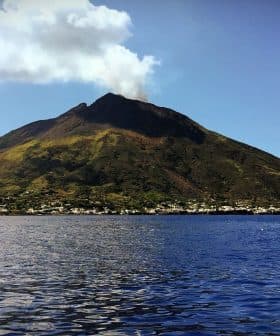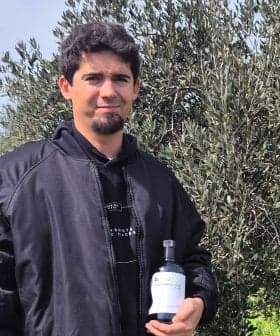Chilean Producers Work to Prevent Harvest Disruption in the Face of Covid-19
Chilean olive oil producers prepare for an early harvest with a minimum of workers during the predicted peak of Covid-19 in the country.
 Harvest at Deleyda (Photos by Carola Dummer Medina)
Harvest at Deleyda (Photos by Carola Dummer Medina)The Chilean olive oil industry is starting its harvest early and reducing its workforce to essential personnel in order to prepare for the 2020 production season during the peak of Covid-19 cases in the country. Despite facing uncertain and complicated conditions, many companies have decided to begin the harvest early to maximize productivity before restrictions on movement complicate operations, following recommendations from the Ministry of Health to protect workers and prevent infections. Sales of olive oil in Chile have increased as people stock up on essentials for quarantine, but companies are concerned about the impact on sales in the hotel and restaurant industry, as well as the absence of international buyers during the harvest season.
The Chilean olive oil industry is preparing an early start to the harvest and stripping down its workforce to essential personnel, in order to prepare for a 2020 production season while Covid-19 cases peak in the country.
We are part of the food chain and stopping is not an option.
Though the olive industry persevered in the wake of the magnitude 8.8 earthquake that hit the country in February 2010, the conditions surrounding the harvest now are even more uncertain and complicated. The industry has been on alert since the first cases of Covid-19 appeared in Chile in the first week of March.
The Chilean Ministry of Health predicts that the Covid-19 pandemic will peak in the country in May, which is also historically the peak of the Chilean olive harvest. In light of this prediction, many companies have decided to start the olive harvest next week, to get as much done as possible before the restrictions on movement make everything more complicated.
See Also:2020 Harvest Updates“Our area still has few cases, but we are preparing ourselves in the event that a mandatory quarantine could be decreed,” explained Héctor Troncoso, agricultural director of Qori, a company in the Ovalle area north of Santiago. Troncoso pointed out that the advance of the harvest is also due to the fact that the area will face a dry autumn, with a high probability of frost.
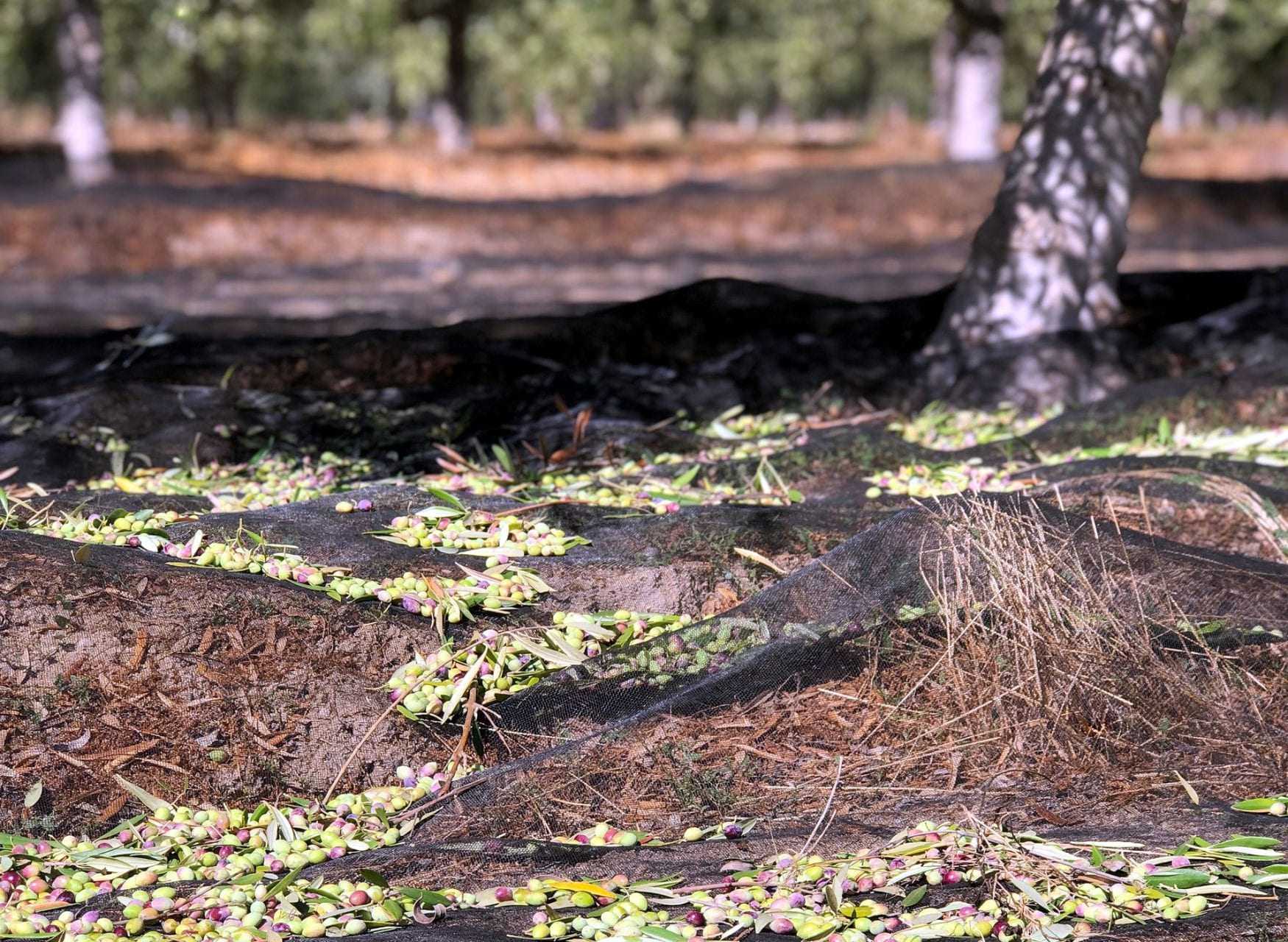
Deleyda
“Agronomically it is a year of high load in Coratina, Frantoio, Arbosana and Koroneiki, normal in Arbequina, Leccino and Frantoio. Fortunately, we have had good availability of water … and we hope that our oils will be of very high quality and we will strive to obtain them in the best way,” he said.
ChileOliva, an association of the largest olive oil companies in the country, is conducting a campaign to encourage producers to move forward with the harvest in the face of the pandemic, association general manager Gabriela Moglia said. The association has also instructed producers to heed Ministry of Health recommendations to protect workers and prevent infections, which could put this year’s production at risk.
Among these recommendations are the mandatory use of masks for all personnel; hand washing and the use of hand sanitizer; temperature monitoring of all employees before they begin work each day; and increased frequency of sanitization of all company facilities.
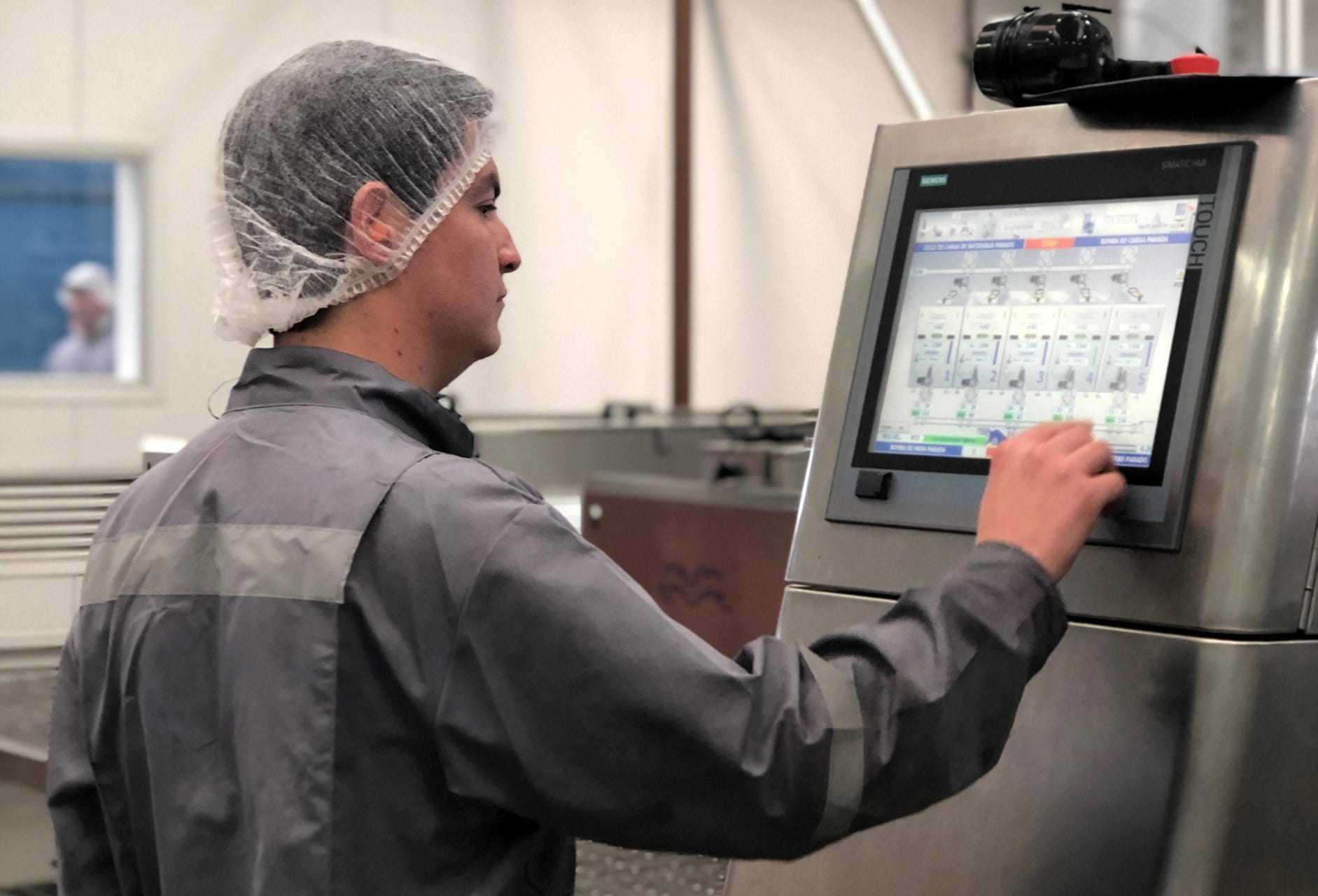
Alonso
Alonso Olive Oil founder and director Juan José Alonso, said the company has already implemented these measures, has gathered all the necessary supplies, and has closed its doors to suppliers and customers.
“We are part of the food chain and stopping [production] is not an option,” Alonso said. “We believe that we will be able to work with our staff, without the need to bring in contractors. [We will start the harvest early] and the week of April 6 we will already be working at full speed.”
Producer Deleyda from the central zone will face its first harvest without the aid of its Italian consultant.
“We [will depend on] the knowledge that our team has consolidated in Chile [over the last 12 years], and we are convinced that we are going to do it well,” said general manager Fernando Carrasco, adding that only the minimum number of workers will be performing each task and that special precautions will be taken to avoid interaction between field, mill, packaging and administration staff.
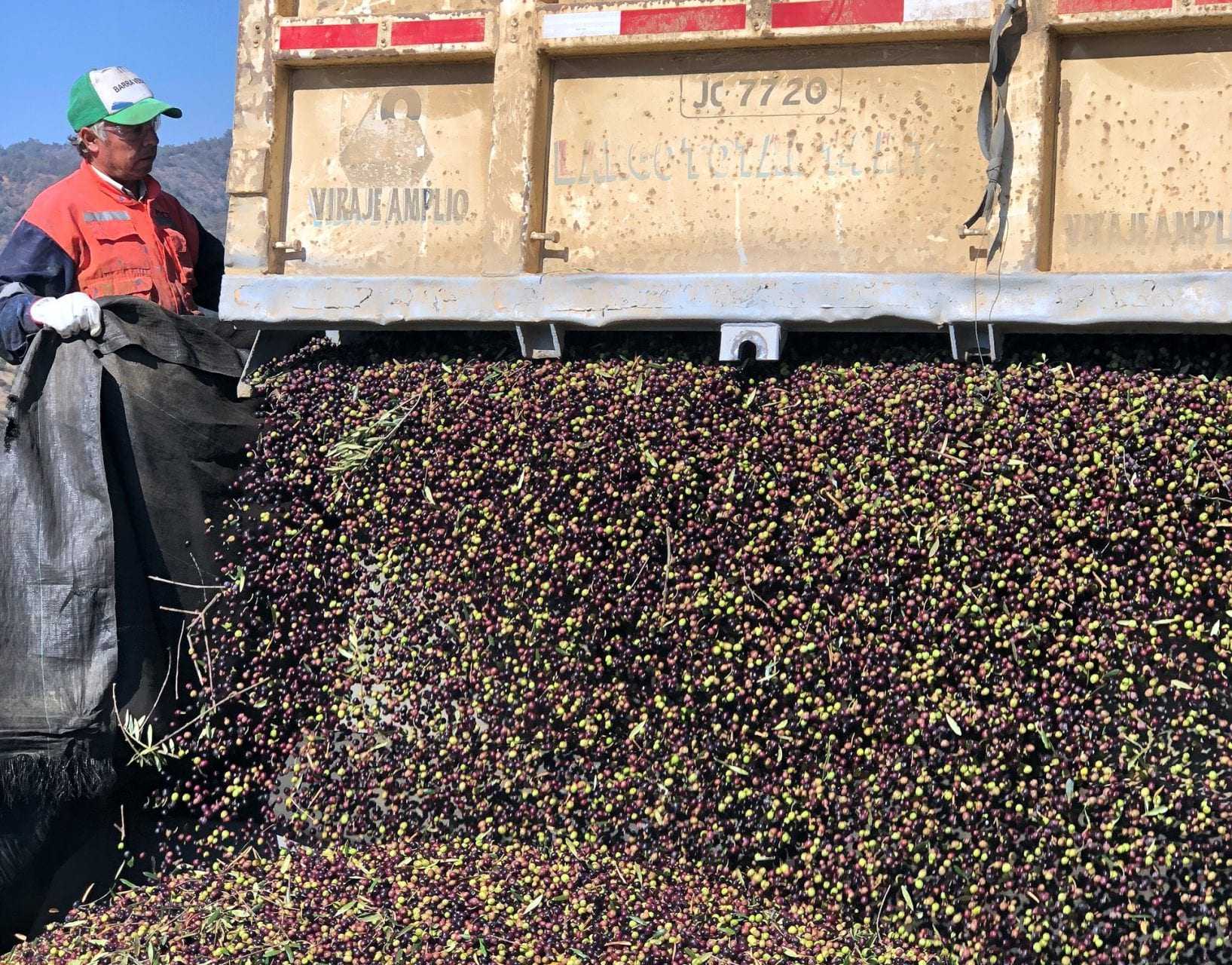
Monteolivo
Manuel Urmeneta, general manager of Monteolivo, one of the main exporters in the country, said that, given the current conditions, everything has been slower, including purchases of spare parts and technical service. Urmeneta said the company is ready to start the harvest and anticipates a higher production than in 2019 — about 100,000 more kilos (about 110 tons) of oil.
“We are prepared to operate with people who live in the fields or near the fields [rather than transferring workers or using contractors],” he said.
There are fewer cases of Covid-19 and more freedom of movement in the regions with the highest olive oil production than in the country’s capital, Santiago, parts of which have already been quarantined.
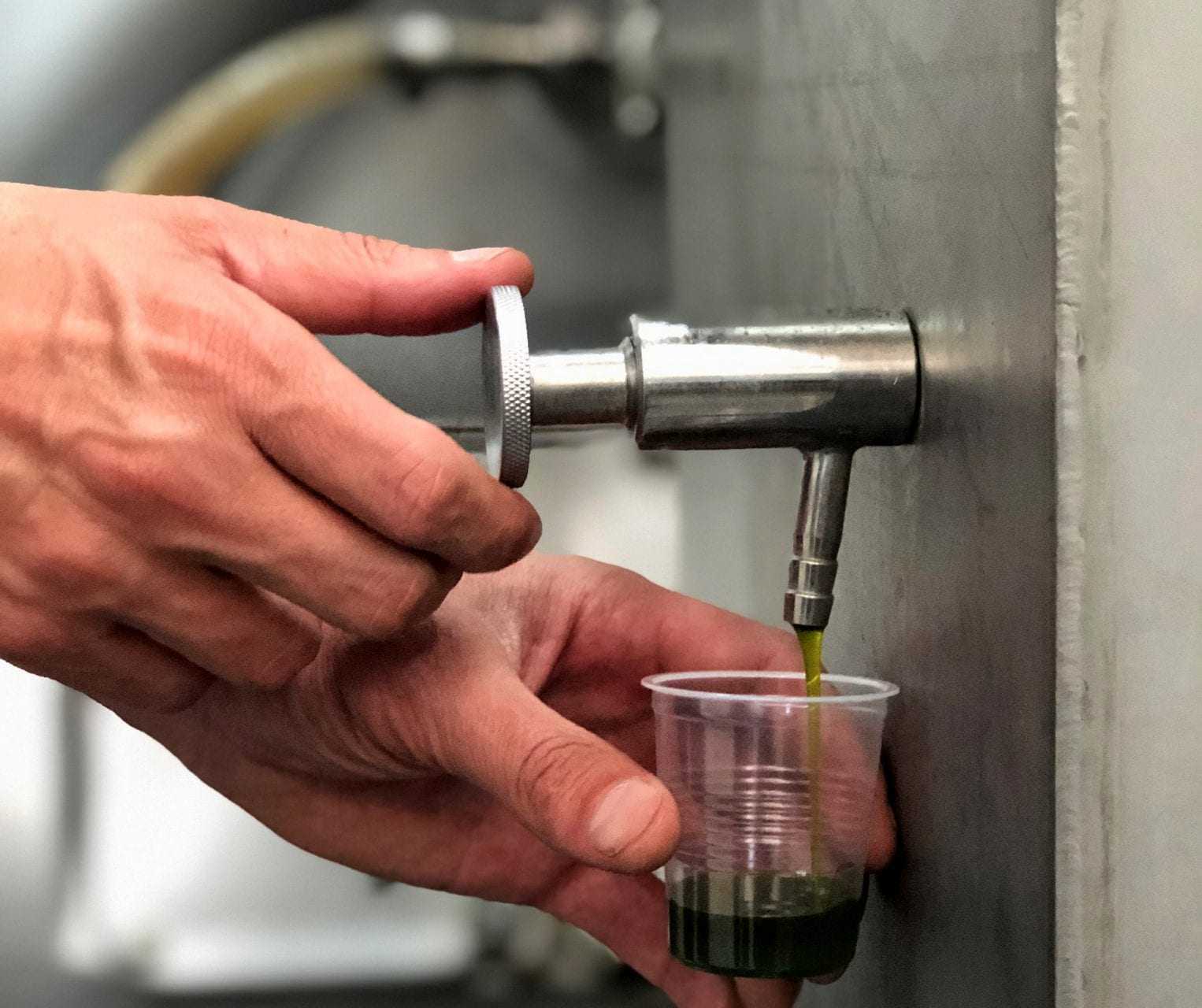
Alonso
March was a record month for domestic sales, as people stocked up on olive oil and other staples to prepare for quarantine.
“In our stores, people came out with more than two drums (5 liters), which is not the usual behavior. We had 22 percent more sales in Chile and a very high increase in online [sales],” said Alonso Olive Oil commercial director José Manuel Reyes.
Deleyda closed March with 17 percent more sales in the Brazilian market, which is its main sales arena.
“People bought for quarantine, and as always happens to us in times of crisis, we increase the sale of premium [oil] versus our classic line,” Carrasco said.
Both companies are concerned about what will happen to sales in the hotel and restaurant channel, which is suffering the most drastic effects of the crisis. Chilean producers will also have to go without the annual visits from international buyers, who usually arrive in mid-April to select the first oils. Without a doubt, the 2020 harvest will be very different than producers had planned.


